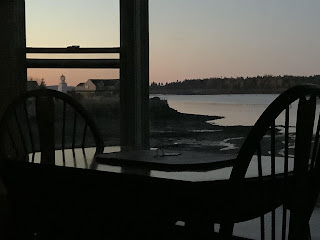Conversations in Future Time
You see, darling,
The biggest problem was that they
You see, darling,
The biggest problem was that they
Could not seem to agree
On whether they all were the same animal
On whether they all were the same animal
Nor could they agree, therefore,
On whether they all had equal value. Value
On whether they all had equal value. Value
They measured, not merely by the fact of breath,
Rendering value obsolete
As a matter of course, but by paper
As a matter of course, but by paper
Dyed into various colors. (They could not agree
On a single color, colors were very
Hard for them, darling.) And that paper
Hard for them, darling.) And that paper
That was dyed and used to measure
Value, passing from hand
To hand, from lover to lover
And so on and so forth,
Value, passing from hand
To hand, from lover to lover
And so on and so forth,
Came, of all things,
From their trees, when their trees
Created the very air they breathed
Which, though of life, was, to them,
Not of value. And so we know
They had gifts great enough to see
Into and out of their condition: the voices
They sang with, the music and poems
And toward the end, before the fire rain
Came and the oceans lifted and merged into one,
And toward the end, before the fire rain
Came and the oceans lifted and merged into one,
Even the structures they lived within
Which healed them as they slept. And though
The minds of many were truly formidable, truly
Formidable, the hearts of some
Formidable, the hearts of some
Alert and alive, they were so detached
From one another, even from those they chose
To birth or raise or walk beside, often existing
Entirely in their bodies, or not at all,
They required something they called a self
Which I think, darling,
Meant they would have believed that
You were not I—
Not ever—
Which, to us, now, would seem silly, wouldn’t it?
(—Poem by Charif Shanahan, in American Poetry Review, vol.48 no. 5)


